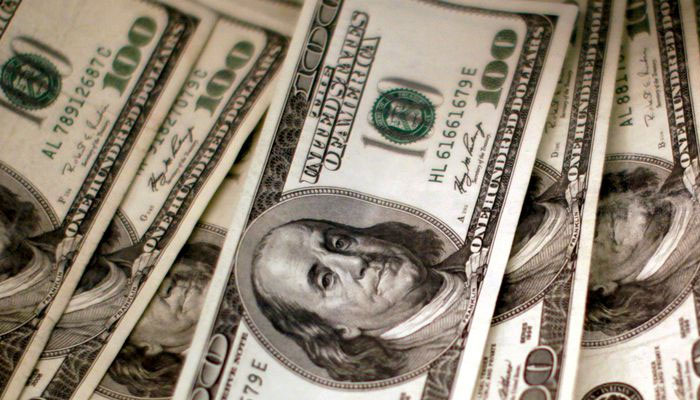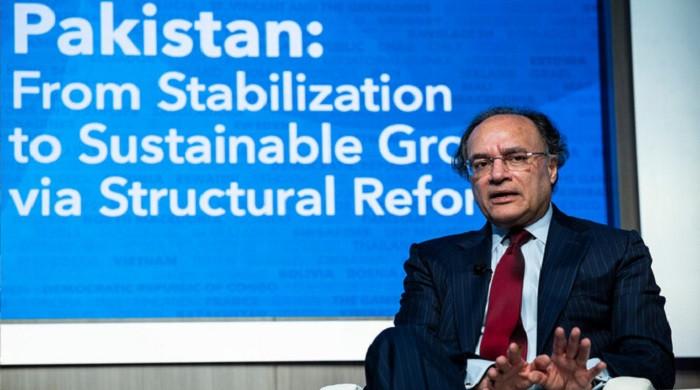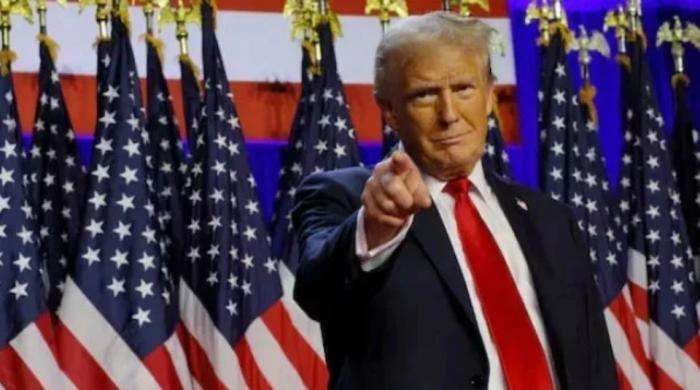Crisis alert: SBP forex reserves hit near 8-year low at $5.821bn
Import cover down at merely 1.10 months as government struggles to meet external financing needs
December 29, 2022

- Debt servicing dents forex reserves by $294 million.
- Lack of foreign inflows weighs on SBP-held reserves.
- Reserves held by commercial banks stand at $5.885 billion.
The total liquid foreign reserves held by the State Bank of Pakistan fell $294 million to $5.821 billion — their lowest in eight years — the latest data showed Thursday due to debt servicing.
This leaves Pakistan with an import cover for merely 1.10 months as its beleaguered government struggles to meet the country’s unwieldy external financing needs.
Foreign exchange reserves held by commercial banks stood at $5.885 billion as of December 23.
Pakistan direly needs funds to cover its current account deficit and debt obligations, for which over $30 billion is needed in external financing this fiscal year. Inflows expected from the International Monetary Fund (IMF) have stuck after a stalemate struck the programme's ninth review.
Arif Habib Ltd's analyst Sana Tawfiq said the IMF’s Extended Fund Facility (EFF) programme had once again fallen off track amid delays in the completion of the 9th review.
“IMF has raised concerns of the fiscal slippages emanating from a combination of the devastating floods and revenue shortfall particularly from Petroleum Development Levy (PDL),” Tawfiq said in a report.
There have also been concerns over the accuracy of the budgeted flood rehabilitation expenditure, she said, adding that survival without IMF was not an option given the scale of the external financing needs, where the majority of the funding was linked to an IMF endorsement.
Data showed that country’s total forex reserves stood at $11,707.2 million as of December 23, 2022.
IMF indispensable over medium- to long-term
Pakistan had a total external debt servicing obligation of $23 billion in FY23, of which $6 billion has been repaid, and, $4 billion rolled over.
While the government had received commitments to fund the remaining amount, delays in IMF's ninth review have cast a shadow on those commitments.
Moreover, with further repayment obligations of $75 billion during FY24-26, the external account remains in a tight spot.
The government estimates disbursements of $103 billion during the next three years to finance the repayments and the current account deficit using a combination of bilateral, private debt, and multilateral flows. Unlocking these flows, however, requires Pakistan to stay engaged with the IMF for the long term.
Finance minister allays default fears
While admitting the country’s economy was in a tight spot, Finance Minister Ishaq Dar Wednesday said there was no chance Pakistan would default.
“Conditions are tight, but Pakistan will move forward. Pakistan will not default,” he said.
“I admit that we do not enjoy the same level of foreign exchange reserves ($24 billion) we left back in 2016. But that is not the government’s fault, the fault is in the system and we must ensure that every stakeholder takes part in carrying the country forward.”
Meanwhile, Minister of State for Finance and Revenue Dr Aisha Ghaus Pasha also stressed earlier today that Pakistan would not default on its international obligations and the government would ensure timely external debt payments.
In conversation with journalists in Islamabad, the state minister added that there is "no chance" of Pakistan's default as authorities were in talks with Saudi Arabia for a $3 billion loan and the same amount from $3 billion. "We will also ensure that our foreign debt requirements are met," the minister said.
'Artificial gap unsustainable'
With depleting reserves, the SBP’s announcement of rolling back import restrictions it imposed in May and July 2022 surprised analysts.
Tawfiq further said dollar-rupee parity had been artificially managed through administrative measures including limits on LC opening, bans on certain imports and curbs on dollar repatriation to keep dollar outflows in check.
She said this has however created a vibrant grey market with a 10-12% gap between official and unofficial rates hurting official remittances (10% decline in 5MFY23).
“We don’t see these measures as sustainable and expect the SBP to gradually loosen administrative measures as the IMF 9th review concludes and other flows materialise,” she added.











